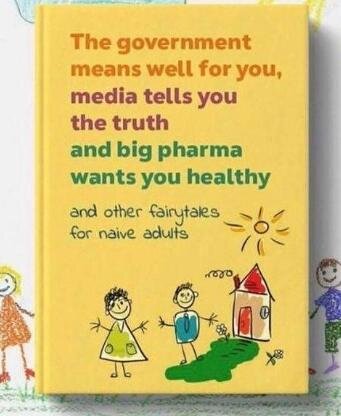@
BalladOfADeadSoulja I assume you know the difference between hazard and risk,, although I fear many people think them synonyms.
Yes of course I do care, and obviously we all hope that did not happen; but I also care about the much greater number who died from the disease; and the far vaster number who have been vaccinated safely and escaped infection.
Vaccines don't necessarily prevent your being infect
ed - and infect
ious - but greatly reduce both that risk of that and the risk of it being severe. All medications carry their own hazards of harmful side-effects but the higher the hazard the lower the risk.
Now tell me what human activity carries no intrinsic hazards. Indeed, consider my own case:
I had to drive an 80--mile round-trip for my first vaccination. Which carried the most hazards and presented the greatest risk of seriously harming or killing me - 1) the Covid itself, 2) the vaccination, or 3) that driving to and from the vaccination centre?
///
I have never said Covid is a major cause of death, but it certainly did kill very many people. It would have killed many more if allowed to, as the anti-precautions campaigners want. Many more shrugged off the disease relatively easily although it was very unpleasant and alarming for them; but there are also many who suffered and still suffer strange after-effects collectively called "Long Covid".
I am not an epidemiologist so I don't know how Covid-SARS-19's mortality compares to related (
but not the same!) potentially-fatal diseases such as Influenza; but that's not the only point.
An epidemic or pandemic, even if most people survive it without debilitating after-effects, in an unprotected population makes vast numbers of people ill all at once. How could that be good firstly humanely, but also socially and economically? Yet that would have been the result if we'd all obeyed the anti-protection campaigners' wishes - no vaccines, no isolating, no masks, etc. How would their way have been humane and right?
All countries did their best in their own ways to fight the pandemic, no doubt various mistakes were made which I hope will be identified properly before the next pandemic. The Public Inquiry into this is already under way in the UK and I assume other countries are holding similar investigations*. Yes, tragically some died unexpectedly from vaccine side-effects and no-one wanted that - although we don't know if the disease itself would have killed these individuals.
What though, would have happened if we'd let rip a disease that was so new to
Homo Sapiensis that very few people in the world would have had any natural immunity? Or doesn't that matter?
.....
*
Public Inquiries... ...... are NOT run to apportion blame or find scapegoats. Nor, importantly, will their answers necessarily always satisfy the narrow interests of certain sections of the Press, social-media or other vested-interests - including victims. The hearing seeks truth, irrespective of wanted beliefs or vengeance - though occasionally the cause can never be found.
An Inquiry's remit is to find solely and objectively, as far as reasonably practical, what went wrong and how.
If it finds
evidence of possible wilful malpractice or negligence, that is for the
appropriate employment or legal authorities
subsequently to pursue.
If it finds weaknesses in institutional processes, the most common form of failure, it is then for those institutions to put right.
If the fault is in the law, or suggests needing a new law, that is for the Government (in the UK, at Parliamentary level) to examine.
For a major example, the
Herald of Free Enterprise disaster indirectly led to the creation of the offence of Corporate Manslaughter. The Inquiry established that the laden car-ferry had capsized by negligent handling, not a collision nor engineering breakdown; and that led to the new law.
And so it is now for the Grenfell Tower fire Inquiry now in its report-writing stage; and for the Covid Inquiry seeking to examine what the country did right and wrong. Hopefully, so they will lead respectively to no more such fires, and in the next pandemic, to better defence.










